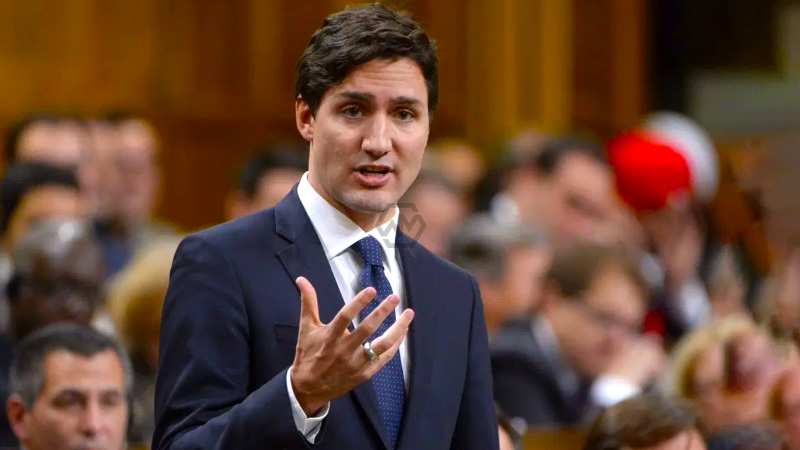- Conservative Leader Pierre Poilievre has tabled a non-confidence motion against Trudeau‘s minority government.
- The NDP and Bloc Québécois are key players in determining the vote’s outcome.
- While Trudeau’s government faces growing public dissatisfaction, a snap election seems unlikely today.
As MPs gather to vote on the Conservative Party’s non-confidence motion, Prime Minister Justin Trudeau’s minority government faces a pivotal test.
Public opinion polls have shown a rise in support for the Conservatives, but this vote may be less about toppling the government and more about creating leverage.
Trudeau’s Government Poised to Survive No-Confidence Vote
Despite Pierre Poilievre’s efforts to unseat Justin Trudeau, the non-confidence motion is not expected to succeed. The Liberals, supported by the NDP and Bloc Québécois, have just enough backing to weather this challenge. Poilievre has framed the vote around the Liberal government’s failure to tackle the rising cost of living and growing dissatisfaction with its climate policies, particularly carbon pricing.
The NDP, while increasingly critical of Trudeau’s government, is prioritizing issues like housing and affordability over an immediate election. Similarly, the Bloc Québécois is leveraging its position to seek concessions on key social benefits. Although today’s vote may keep Trudeau in power, it’s a stark reminder of his government’s vulnerabilities, with more challenges expected in the coming months.
The non-confidence motion centers around deep dissatisfaction with Trudeau’s economic policies, notably the controversial carbon tax, which Poilievre argues is exacerbating inflation. Yet, Trudeau’s government maintains that the carbon tax rebates offset much of the cost for most Canadians. This disagreement on policy reflects broader political divisions, with Poilievre portraying himself as the leader ready to restore what he calls the “promise of Canada” by cutting taxes and government spending.
Opposition leaders like Jagmeet Singh and Yves-François Blanchet are carefully navigating their roles. Singh’s NDP is distancing itself from past agreements with Trudeau but isn’t ready for an election. The Bloc is using its position to influence social policy reforms, especially in regard to old-age pensions. As a result, the motion is more symbolic of Trudeau’s weakened position than an actual trigger for an election. However, it signals potential future threats to his government as it navigates a more divided Parliament.
While the Liberals are expected to survive the vote, the pressures they face are mounting. Public discontent is rising, with Trudeau’s handling of inflation, housing, and climate policy at the center of criticism. Poilievre, buoyed by strong polling numbers, continues to advocate for more dramatic economic changes, calling for tax cuts and reductions in government spending to address affordability issues. The next few months could see more attempts to challenge the government’s leadership.
Trudeau’s minority government is likely to survive today’s non-confidence vote, but this is just the beginning of a potentially turbulent period. Poilievre’s growing popularity and dissatisfaction with Liberal policies mean the government will face continuous pressure from both opposition leaders and voters.
“What I heard yesterday from Mr. Poilievre was so over the top, so irresponsible, so immature, and something that only a fraudster would do,”



